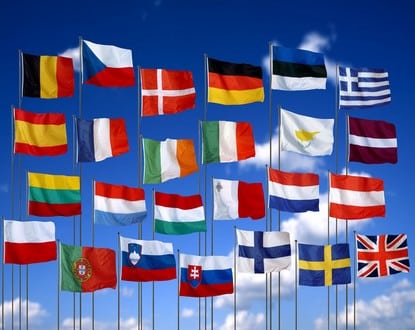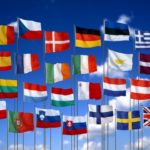It is said that politics is a matter of heart and intelligence.
If that’s true, it is difficult to find these two qualities in the following events …
 On the occasion of a World Cup football match, Algeria’s supporters loudly came out to celebrate their team’s victory. In some cities – but not in Nice – there were incidents to be condemned without hesitation, which do not honor those who claim their national pride, which does not need acts of violence to be proclaimed.
On the occasion of a World Cup football match, Algeria’s supporters loudly came out to celebrate their team’s victory. In some cities – but not in Nice – there were incidents to be condemned without hesitation, which do not honor those who claim their national pride, which does not need acts of violence to be proclaimed.
On the occasion of the subsequent match (Germany-Algeria on July 1st), the mayor of Nice issued a municipal order “banning the ostentatious use and causing public disorder of foreign national flags on the streets, quays, squares, and public roads in the city center of Nice.”
This order, well-dressed, is naturally addressed to Algerian supporters, unless it is an act of absolute patriotism.
For this purpose, should the flags of the European Union countries be considered foreign?
General confusion, with the most disparate comments, but, in fact, no political voice has risen in support of this decision. Only Marine Le Pen intervened on the point of the dual nationality of some Algerian team players, which is another matter.
The same evening, Germany eliminated a deserving Algeria with great difficulty from the competition, and ultimately, this result avoided potential public order disorders but especially a next France-Algeria match!
sued by humanitarian associations, the Administrative Court finally decided to “suspend the execution” of this order pending a final judgment.
Christian Estrosi then announced in a statement that he will not withdraw it. But, the court’s decision is enforceable, so this municipal order will remain void pending the final judgment.
The motivation? “I took this order due to the government’s inability to respect the symbols and values of our Republic,” said the Nice mayor before launching the traditional accusation at the government: “However, I remind you that it belongs to the State to ensure public order, but it is clear that the socialist government* is unable to assume this mission, and the evidence is the disturbances experienced by the major cities of France during the last matches with cars burned and numerous assaults.”
To conclude his plea: “In the face of this loss of State authority that I will never accept, I will not withdraw this order pending the final judgment, and I will soon submit a bill allowing the Mayor the power to take any preventive measure to prevent any attack on public order in light of local circumstances.”
The considerations
This statement expresses legitimate political considerations, but off-topic, and we allow ourselves to remind that the word “government” does not need adjectives to qualify it. It is that of the Republic, designated by the President, voted by Parliament, composed of deputies and senators representing the power of the people.
But in concrete terms, what point is the mayor of Nice trying to reach?
First of all, we must admit that we are discussing something unenforceable.
Referring to public order, were there cars burned and numerous assaults not handled by the National Police during the Algeria-Russia match? Naturally, we speak of what happened in Nice, concerning local circumstances, as the Nice mayor himself fittingly reminds.
Since, it is public knowledge, none of this occurred, one must imagine this order was more a measure of prophylaxis than prevention.
Note that, a few hours after Christian Estrosi’s (ineffective) refusal, the French team lost, not without merit, against Germany… and if these orders brought bad luck to the opponents of the Germans? Christian Estrosi, fifth column of Die Mannschaft?
This is a path to signal to future opponents of the fortunate victors of the Algerian and French teams who must hope that the “final judgment” of the Administrative Court does not fall on the day of their match against Germany!
Never twice without three! A small order and… assured defeat!



